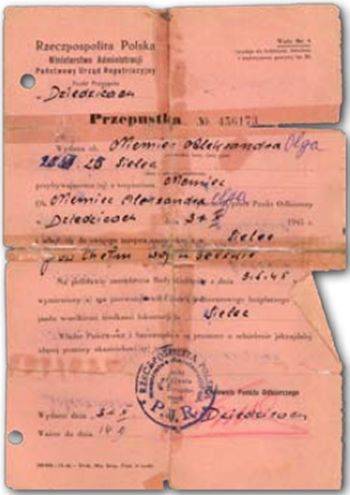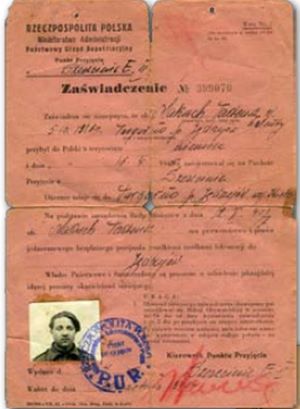The task of this office was to organize the repatriation of the Polish population to the country after the war (and other non-German territories), as well as the displacement of foreign people (to Germany and the USSR). It had to ensure food supplies, transportation, shelter, sanitary and medical care for those waiting to be repatriated and replaced people (refugees) until the date of their expatriation. PUR was set up by decree PKWN on October 7, 1944, and subordinate officers of PKWN, and from 7 May 1945, the Ministry of Public Administration. On December 13, 1945 it was incorporated into the Ministry of the Recovered Territories. After the liquidation of the ministry in January 1949, between April and the end of March 1951 (for its liquidation), PUR was subjected to the Prime Minister. External documentation was produced by PUR was linked to a list of people associated with the repatriate-office.

These documents issued by the PUR were the most common documents that enabled people to travel for free to their destination. These documents later became the basis for the identity card. Registration was provided by the check-points situated on the border of the state. The administration of PUR was on a district level (i.e. it was not ran directly by the government). Proof that a repatriate passed through the check-point was made by PUR with the usage of annotations and stamps on the documents held by the registered person. These documents were issued both by the occupation authorities, as well as Allies. General Government plenipotentiary Office for Repatriation, which acted with full authority was responsible to provide assistance to those who did not possess any documents of identification. Since its establishment, PUR task was limited to the organization of transport and immigration within the Polish territory.
